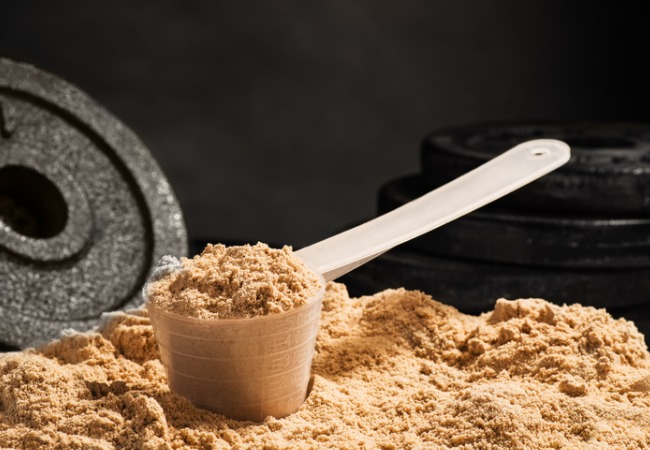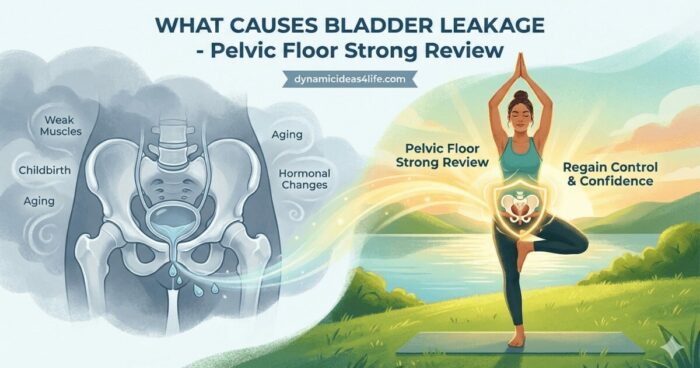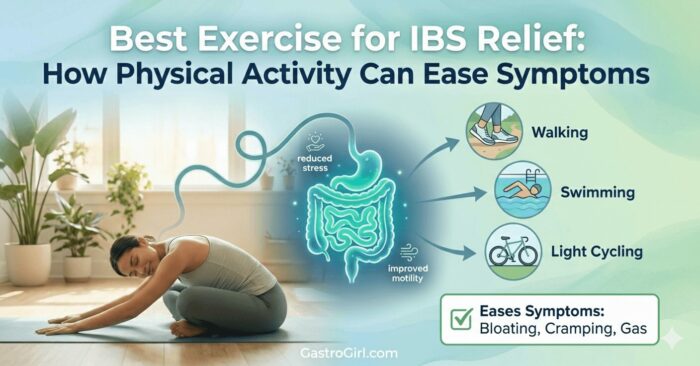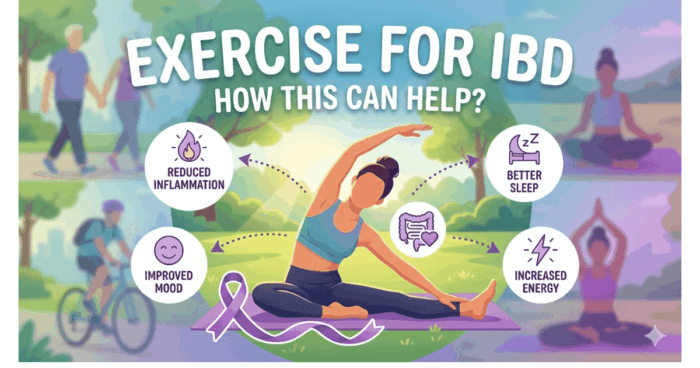
When it comes to Gym Supplements one type that is quite popular is BCAAs or Branch-Chain-Amino-Acids. Many new trainers might not be too familiar with all the different kinds of products at their disposal but let’s take a look at this.
How Can BCAA Supplements Help With Muscle Recovery For Gym Goers?
So for someone that has just started going to the gym, they might not be thinking straight away about what supplements they will need or not. Maybe Protein Shakes will be the first thing but for the more experienced gym trainer, BCAAs will be something that comes up more in conversation.
Some say that they are not really worth taking but there is an argument here.
Mostly because muscle recovery is very important. If you can’t recover your muscles in time for the next gym session then you can not train. For professional athletes in particular this can be a HUGE deal and BCAAS whether in supplement form or not are essential for this.
They say BCAAs you can get easily through dietary sources such as white meat, eggs, and soybeans as just a few examples. So certainly consuming the right types of food sources are important but still taking BCAA supplements is a big part of a lot of people’s workout regime so how about this?
How Can BCAA Supplements Help…
With Muscle Recovery?

According to scientific research, Branched-Chain Amino Acids (BCAAs) are a group of essential amino acids that play a crucial role in muscle recovery. The three amino acids included in this group are
- Leucine,
- Isoleucine, and
- Valine.
BCAAs are unique because they are metabolized directly in the muscles rather than in the liver, making them readily available for muscle repair and growth.
Simply put BCAAs work in a few different ways. Firstly, they stimulate muscle protein synthesis, which is the process by which new muscle proteins are created. Leucine, in particular, plays a significant role in activating the molecular pathways responsible for protein synthesis.
By increasing protein synthesis, BCAAs help repair and rebuild damaged muscle tissues that occur during intense exercise or physical activity. They can also help reduce muscle soreness and fatigue.
During intense exercise, the muscles experience micro-tears and damage. This results in the release of inflammatory markers, which contribute to muscle soreness.
BCAAs have been found to reduce exercise-induced muscle damage and decrease the production of these inflammatory markers. By doing so, they help alleviate muscle soreness and promote faster recovery.
And also, BCAAs help replenish glycogen stores in the muscles. Glycogen is a form of stored energy in the muscles that get depleted during prolonged or intense exercise.
By providing a source of energy, BCAAs can aid in replenishing glycogen levels, thus enhancing muscle recovery and reducing the risk of muscle breakdown.
*However, this text above does not specifically apply to supplements so let’s take a look at this below…
The Argument ‘For’ and ‘Against’ The Use of BCAAs
Advocates of BCAA Supplements argue that taking these products offers several benefits that can help support better athletic performance and muscle recovery. The right kind of diet alongside this is obviously important but by providing a more immediate source of amino acids, BCAA supplements can promote the synthesis of new muscle proteins, facilitating faster recovery and muscle adaptation to exercise.
They are typically thought to also help boost the production of Glucogen and to hasten the feeling of muscle soreness but obviously, this is only one side of the coin and some argue that BCAA supplements are not really necessary at all.
So Do BCAA Supplements Actually Work?
Critics of BCAA supplementation argue that consuming these supplements may not be necessary for most individuals, as a well-balanced diet can already provide sufficient amounts of these amino acids.
For a lot of people, BCAAs are found naturally in protein-rich foods such as meat, poultry, fish, and dairy products, and if enough of this protein is consumed then this is thought to be enough to meet the body’s natural BCAA requirements.
Furthermore, some studies suggest that taking BCAA supplements in isolation may not be as effective as consuming a complete protein source. Complete proteins contain all the essential amino acids, including BCAAs, in the right proportions.
Therefore, relying solely on BCAA supplements may not provide the same comprehensive benefits as consuming whole-food protein sources.
But, can taking BCCA Supplements alongside the right kind of protein-rich diet really help speed up muscle recovery? This is the million-dollar question here and it really is a matter of opinion.
Supplements in whatever they contain will generally affect people in different ways.
As much as any scientist might say otherwise it is always sensible to check out product reviews to see how the actual guinea pigs of these products are affected. BCAA Supplements do not really come cheap but people do buy them and there are plenty of positive reviews to be found. So let’s take a look at this…
What Customers Say About BCAA Supplements

Looking through the reviews on Amazon for Thorne Research’s Thorne Amino Complex there are quite a lot of reviews here with a quite consistent theme – that by taking this BCAA supplement its consumers are able to train harder. They need less recovery time between gym and exercise sessions and the effects are quite clear to see.
However, what a lot of these people say is they switched to this particular supplement because the ones they were taking before weren’t very good and they did not help with what they wanted them for. Most reviews for this product in particular say that they do work as intended and those that have left bad reviews have done so because of the taste.
So this I think pretty much says it all about BCAA supplements in general. If you can find the right ones they can make all the difference. Taste wise there can be problems but again this depends on the product.
I haven’t really looked at any other reviews. Thorne Amino Complex I chose it because it is on the top 10 list on Healthline. I don’t actually think it matters here too much because I just wanted to prove this point that actual customers do claim to have benefited from taking BCAA supplements but definitely read reviews before you buy. Now…
When Should You Start Taking BCAAs?

Determining the optimal timing to start taking BCAAs as a dietary supplement can depend on individual factors and specific fitness goals. Here are some considerations to help guide the decision-making process:
- Pre-Workout: Some individuals choose to consume BCAAs before their workouts to provide a readily available source of amino acids during exercise. This can help prevent muscle breakdown and improve endurance. Taking BCAAs 30 minutes to an hour before exercise allows time for digestion and absorption, ensuring they are available when needed during the workout.
- Intra-Workout: Taking BCAAs during a workout is another common approach, especially for prolonged or intense training sessions. By sipping on a BCAA beverage or supplement during exercise, individuals can maintain a steady supply of amino acids to fuel the muscles and minimize muscle damage.
- Post-Workout: Consuming BCAAs after a workout is a popular choice for many individuals. The immediate post-workout period is a crucial time for muscle recovery and growth. BCAAs can help jumpstart the muscle repair process by providing essential amino acids that stimulate protein synthesis and aid in the replenishment of glycogen stores. Taking BCAAs within 30 minutes to an hour after exercise is a commonly recommended timeframe.
- Between Meals: BCAAs can also be taken between meals, especially during periods of calorie restriction or when the individual’s dietary protein intake may be lower. This helps provide a constant supply of amino acids to support muscle protein synthesis and prevent muscle breakdown.
- Before Fasted Training: Some individuals prefer to exercise in a fasted state, typically in the morning before eating. In these cases, taking BCAAs prior to the workout can help provide energy and prevent muscle breakdown when no other nutrients are available.
Ultimately, the decision on when to start taking BCAAs as a dietary supplement depends on personal preference, training routine, and overall nutritional strategy. It is worth noting that BCAA supplements are not a prerequisite for achieving fitness goals, and individuals with a well-balanced diet rich in protein may already be meeting their BCAA needs naturally.
So this is really the main thing to think about, but for anyone that is wondering before they decide to start taking BCAAs.
Are There Any Side Effects Or Possible Dangers
BCAA supplements are generally safe when taken in recommended doses. However, some individuals may experience gastrointestinal discomfort or allergic reactions. BCAA supplementation can interact with certain medications and may require caution for those with kidney conditions.
Overconsumption should also be avoided to maintain a balanced amino acid profile.
In any case, It is important to consult with a healthcare professional before starting BCAA supplementation, especially if you have underlying health conditions or are taking medications. Quality and reputable brands should be prioritized.
I think I have covered most things in this article now but there is something else.
Can You Replace BCAA Supplements With Proteolytic Enzymes
So I know this is just a theory of mine but as BCAAS are readily available amino acids here is something you can try instead. If you already have quite a high intake of protein then one thing you could try is supplementing with Proteolytic Enzymes instead. What this will do is break down more of your dietary protein into amino acids including you guessed it BCAAS. I have not tried this but just wanted to squeeze this in here.
Although, I will say this is a very indirect way of doing things. BCAAs are a direct method of supplementation but anyway, I would definitely recommend watching this video and checking out the link below.
In Conclusion
Undoubtedly, BCAA supplements have gained popularity for their potential benefits in muscle recovery and performance enhancement. They provide essential amino acids, particularly leucine, that stimulate muscle protein synthesis and aid in the repair and growth of muscles.
However, it is important to consider individual circumstances and goals when deciding whether to incorporate BCAA supplementation into your routine. For individuals with a well-balanced diet rich in protein, BCAAs may already be obtained naturally from food sources.
Whole food protein sources can offer a broader range of nutrients beyond just BCAAs. So It is crucial to prioritize overall diet quality, training intensity, rest, and sleep as factors that contribute to optimal recovery and performance.
Also, while BCAA supplements are generally safe, some individuals may experience gastrointestinal discomfort or allergic reactions. Those with underlying kidney conditions or taking certain medications should also exercise caution.
Ultimately, BCAA supplements should be seen as a potential tool to complement an already well-rounded approach to nutrition and training. Personalized advice and guidance from professionals can help determine the most suitable approach for your specific needs.
By combining proper nutrition, training, and recovery strategies, you can optimize muscle recovery, support your fitness goals, and strive for peak performance.
Related FAQs
What Are BCAAs?
BCAAs, or Branched-Chain Amino Acids, are a group of essential amino acids including leucine, isoleucine, and valine. They play a crucial role in muscle recovery and growth.
How Do BCAAs Help with Muscle Recovery?
BCAAs stimulate muscle protein synthesis, reduce muscle damage and inflammation, and aid in glycogen replenishment. These mechanisms contribute to faster muscle recovery and reduced muscle soreness.
Can I Get BCAAs from Food Sources?
Yes, BCAAs are naturally found in protein-rich foods such as meat, poultry, fish, and dairy products. Consuming a balanced diet with adequate protein intake can provide BCAAs.
When Should I Take BCAA Supplements?
BCAAs can be taken before, during, or after workouts. Pre-workout supplementation of BCAAs provides a source of amino acids for energy during exercise, while post-workout supplementation aids in muscle repair and glycogen replenishment.
Can BCAA Supplements Replace Whole Foods?
BCAA supplements should not be seen as a replacement for whole foods. A well-balanced diet that includes protein-rich foods provides a broader range of nutrients beyond just BCAAs. BCAA supplementation is meant to complement a healthy diet and training regimen.
Do BCAAs Enhance Performance?
BCAAs may help improve endurance, reduce fatigue, and prevent muscle breakdown, which can indirectly enhance performance. However, overall performance is influenced by multiple factors, including training, nutrition, and rest.
Are BCAAs Suitable for Vegans or Vegetarians?
Yes, BCAA supplements are available in vegan or vegetarian forms. They are derived from plant-based sources, making them suitable for individuals following a vegan or vegetarian lifestyle.
References
- Shimomura, Y., Murakami, T., Nakai, N., Nagasaki, M., & Harris, R. A. (2004). Exercise promotes BCAA catabolism: effects of BCAA supplementation on skeletal muscle during exercise. The Journal of Nutrition, 134(6), 1583S-1587S.
- Jackman, S. R., Witard, O. C., Philp, A., Wallis, G. A., Baar, K., & Tipton, K. D. (2017). Branched-chain amino acid ingestion stimulates muscle myofibrillar protein synthesis following resistance exercise in humans. Frontiers in Physiology, 8, 390.
- Ra, S. G., Miyazaki, T., Kojima, R., Komine, S., Ishikura, K., & Kawanaka, K. (2017). Combined effect of branched-chain amino acids and taurine supplementation on delayed onset muscle soreness and muscle damage in high-intensity eccentric exercise. Journal of the International Society of Sports Nutrition, 14(1), 21.
- Howatson, G., Hoad, M., Goodall, S., Tallent, J., Bell, P. G., & French, D. N. (2012). Exercise-induced muscle damage is reduced in resistance-trained males by branched chain amino acids: a randomized, double-blind, placebo controlled study. Journal of the International Society of Sports Nutrition, 9(1), 20.
- Negro, M., Giardina, S., Marzani, B., & Marzatico, F. (2008). Branched-chain amino acid supplementation does not enhance athletic performance but affects muscle recovery and the immune system. Journal of Sports Medicine and Physical Fitness, 48(3), 347-351.






Anxiety and Depression BiOptimizers blood pressure supplements blood sugar control blood sugar support supplements cognitive function digestive enzymes Digestive Enzymes Supplement digital products Dr Sam Robbins Gut Health Gut Health While Travelling Health Tips for Travelling Healthy Living heart health HFL how to lower blood sugar levels How To Lower Cholesterol insulin resistance joint health supplement Keto keto dieting Keto Diet Weight Loss leaky gut supplements leptin resistance Magnesium deficiency Matt Gallant mental health multivitamins Nootopia Nootropics Probiotics Probiotic Supplements reverse type 2 diabetes stress and anxiety stress relief Supplements vitabalance vitapost Wade Lightheart weight loss articles weight loss diet plans weight loss product reviews weight loss supplements weight loss tea





